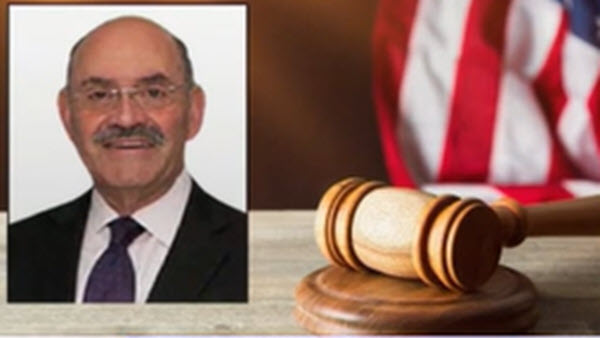Allen H. Weisselberg, former Trump Organization finance chief and a figure closely associated with Donald J. Trump for decades, has decided to plead guilty to perjury charges. This development not only thrusts Weisselberg back into the legal spotlight but also adds a new layer to the complex legal battles surrounding the former president.
Loyalty to Trump Costs Weisselberg
Weisselberg’s unwavering loyalty to Trump has been both a shield and a sword. Despite the mounting pressure from prosecutors, he has consistently refrained from implicating Trump. This steadfast allegiance, however, has its price. Weisselberg, at 76, now admits to lying under oath during investigations led by the New York attorney general’s office, which accused Trump of inflating his net worth for financial gain.
The Consequences of Truth
The repercussions of Weisselberg’s plea are substantial. Previously embroiled in a tax fraud case without directly implicating Trump, he testified against the Trump Organization, leading to a conviction and his own five-month sentence. Now, as he faces perjury charges, another stint at Rikers Island looms, raising questions about the charges’ severity, whether misdemeanors or felonies.
Trump’s Legal Woes Intensify
This plea arrives at a particularly delicate time for Trump, who is on the brink of a trial over unrelated criminal charges involving a hush-money payment. The former president, accused of falsifying business records to cover up a potential scandal, faces the first criminal prosecution of a former U.S. president. Weisselberg’s guilty plea could sway the upcoming trial, possibly deterring other witnesses from dishonesty and discrediting his own testimony.
The Broader Implications of Perjury
Prosecutors argue that perjury, even in the absence of violent crime, strikes at the justice system’s heart, undermining its very foundation. This stance signals a stern warning against deceit in legal proceedings, emphasizing integrity over loyalty or personal gain.
Trump and Allies Cry Foul
Trump and his allies have vocally criticized the prosecution, painting it as a politically motivated attack. They lament the personal cost to Weisselberg, emphasizing the perceived injustice of his return to prison and challenging the allegations of dishonesty in the civil fraud case brought against them.
The Fallout from a Fabricated Empire
The case against Trump and Weisselberg also highlighted discrepancies in the valuation of Trump’s assets, notably his Trump Tower triplex. Despite Weisselberg’s attempts to minimize his role, evidence suggested his active involvement in inflating the property’s value, challenging his credibility and suggesting a pattern of deceit designed to benefit the Trump empire financially.
A Pattern of Deceit Revealed
The judge’s ruling against Trump and Weisselberg underscored the systemic manipulation of asset valuations, casting a shadow over their business practices. Weisselberg’s severance agreement, designed to ensure his ongoing loyalty to the Trump family, further tainted his testimony, revealing the lengths to which the organization would go to protect its interests.
Navigating a Labyrinth of Legal Challenges
As Weisselberg prepares for the consequences of his plea, the broader narrative of loyalty, deception, and the pursuit of justice in the shadow of power continues to unfold. This latest chapter not only underscores the personal cost of allegiance to powerful figures but also highlights the intricate dance between truth, accountability, and the law in the realm of high-stakes politics and business.
Stay up to date on other relevant news in our “News and Politics” section.





